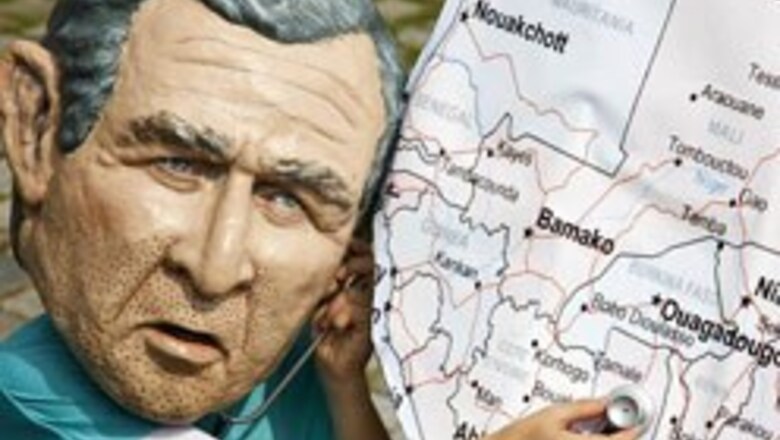
views
Rostock, Germany Protesters have clashed with police close to where the leaders of the Group of Eight countries were gathering in northern Germany on June 6 for their annual summit.
A police spokesman said several hundred demonstrators had reached the 12-km fence that surrounds the main summit site at Heiligendamm.
CNN's Frederik Pleitgen said some of the protesters were throwing rocks at officers. Police responded with water cannon. It was unclear whether anyone was injured, The Associated Press reported.
The fence (around one mile from the main venue) is topped with barbed wire and guarded by 16,000 security personnel, a Reuters report said.
Elsewhere, protesters blocked two roads to the main summit site from the nearby city of Rostock, police told AP.
"We wanted to prevent this from happening but now they are there and we are handling it," said spokesman Manfred Luetjann.
Wednesday's demonstration comes after almost 1,000 people were injured on June 2 when violence broke out at an anti-G8 protest in Rostock.
Climate change and African aid top the agenda for the three-day meeting of the leaders of the world's leading industrial nations, but proceedings were expected to be overshadowed by political tensions between the US and Russia.
US plans for a missile defense shield on European soil coupled with harsh criticism over faltering democratic reforms in Russia have irked lawmakers in Moscow and sparked strong rhetoric from Russian President Vladimir Putin who said any threats to Russia would be met with retaliation and threatened to aim missiles at European targets if the US went forward with the program.
"It's going to be a pretty awkward summit altogether, I think ... because Vladimir Putin isn't only at odds with the US, he's at odds with many
European Union countries over issues like energy security, the future of Kosovo and the kinds of criticisms there have been over the quality of Russian democracy," said CNN's European Political Editor Robin Oakley.
Meanwhile, Russia has also been criticized by the US and European countries for stifling democratic reform.
In a speech to freedom campaigners in the Czech Republic on June 5, US President George W. Bush reinforced that point of view by commenting that democratic reforms in Russia introduced since the collapse of the Soviet Union had been "derailed."
Muscle flexing from an economically confident Russia (the European Union depends on Russia for 40 per cent of its energy needs) could also make reaching an agreement difficult.
Oakley said Russia's economic progress in recent years had made it a much more powerful player that would push its point of view: "Russia is no longer an economic basket case like it was a few years back . Russia is becoming more assertive about its political agenda."















Comments
0 comment